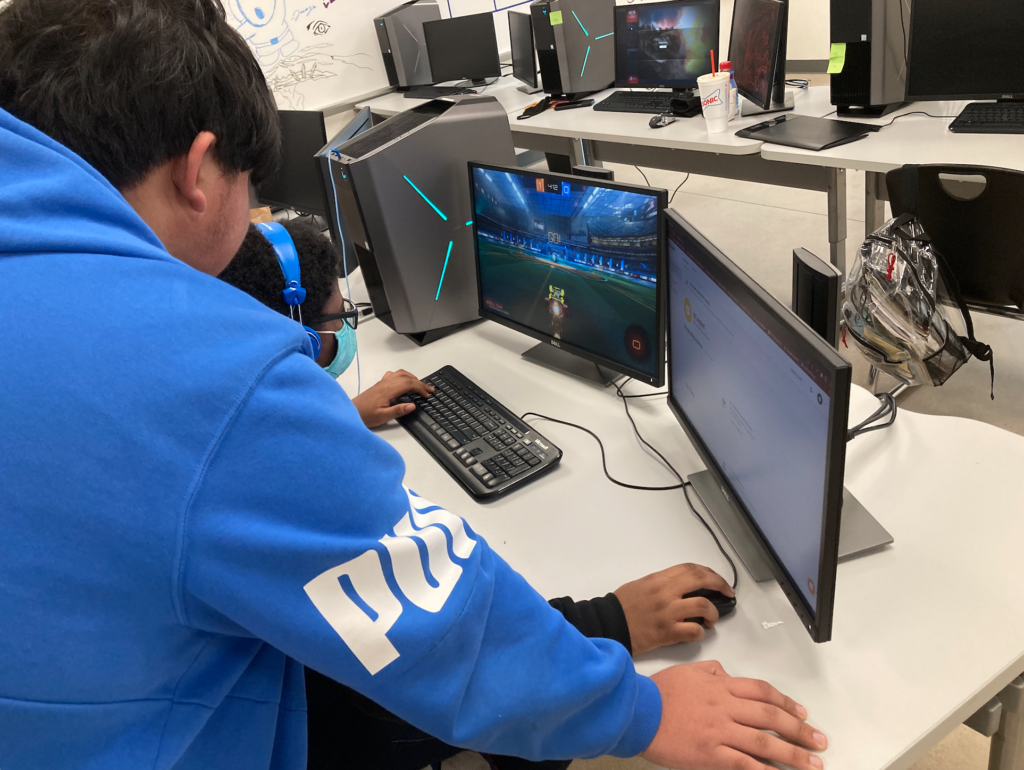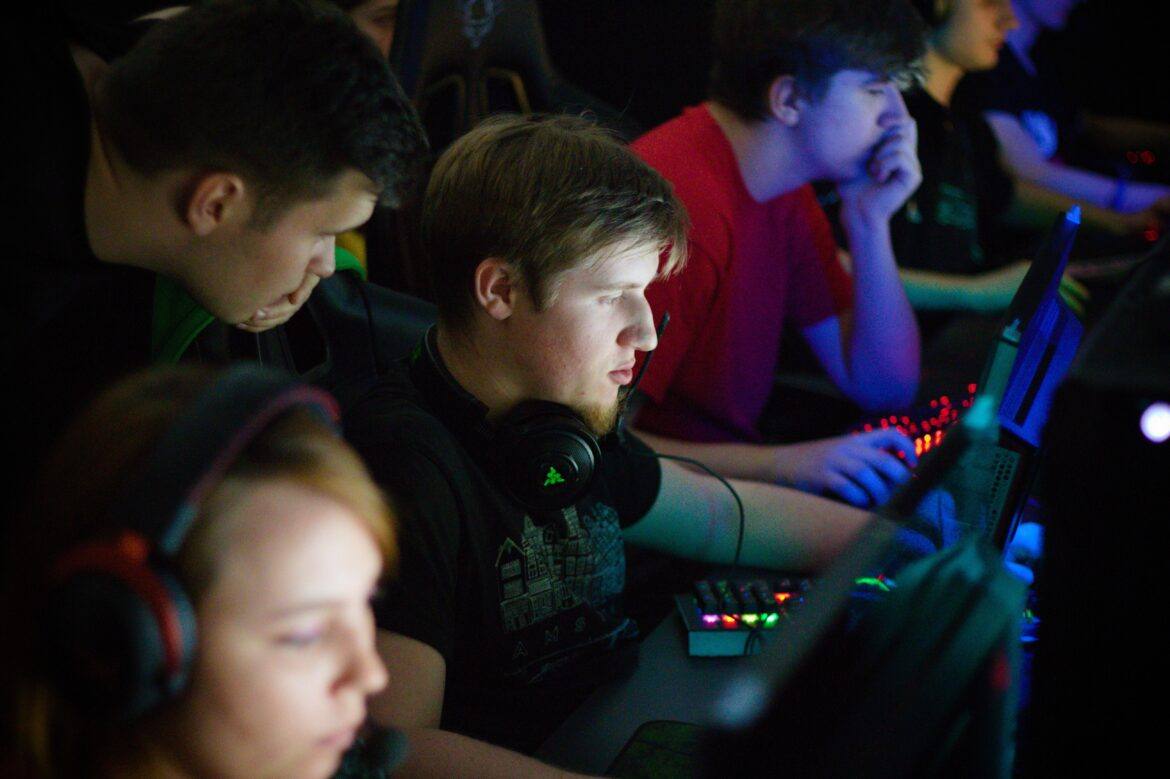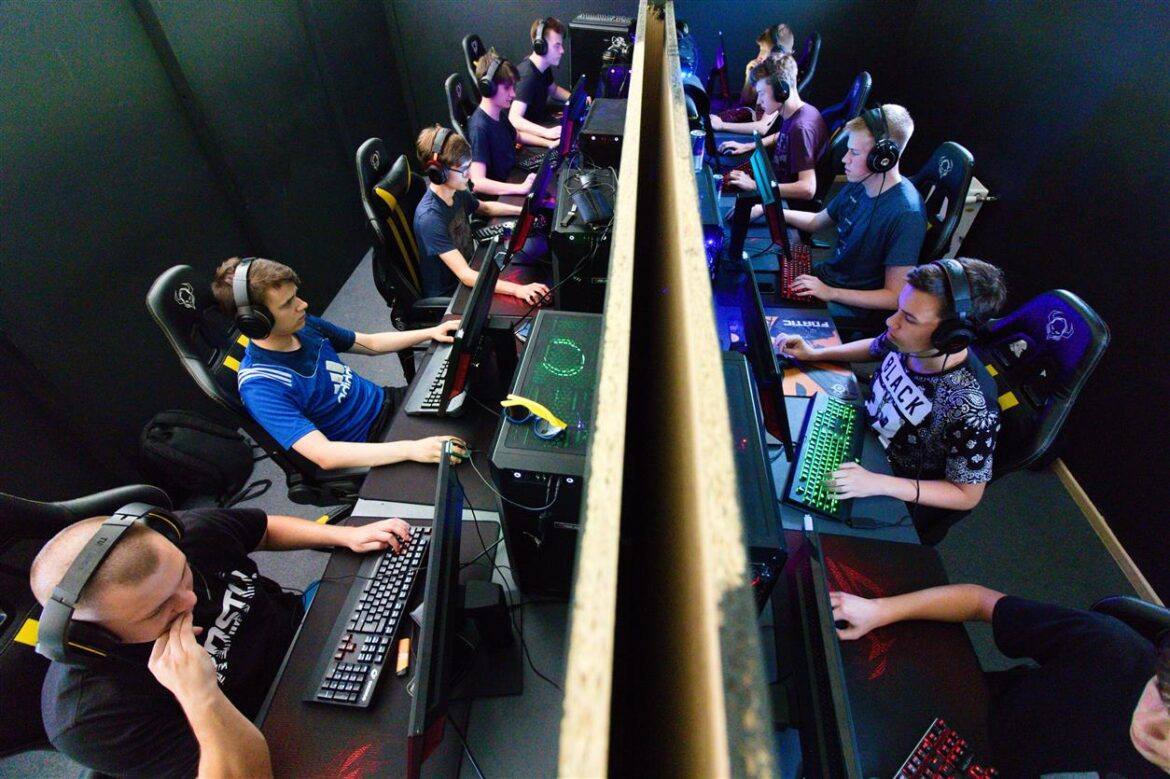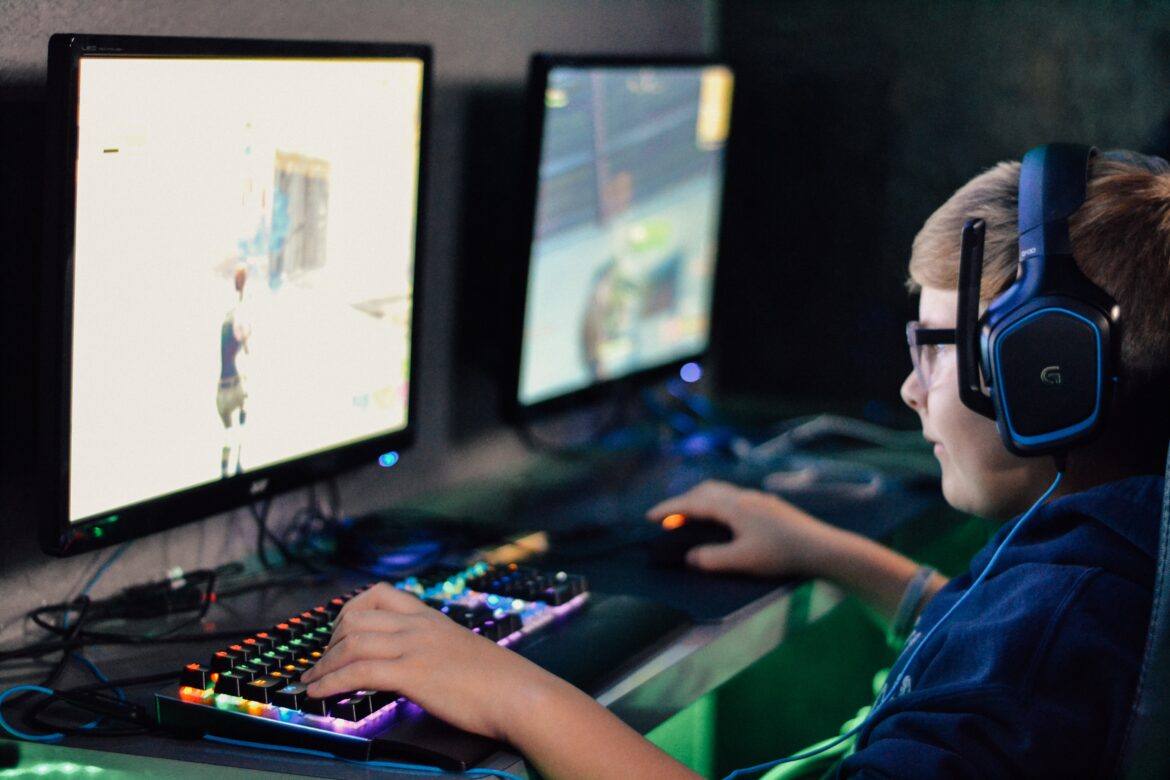This month we’ll take a look at a hot topic: Does playing video games harm children’s cognitive development? Everyone’s got an opinion about this, but what does the research say? Let’s see if there is a clear answer.
How Much Time Do Kids Spend Playing Video Games?
Several recent studies have found that, in general, children are spending the following amounts of time playing video games either on mobile devices or on computers:
- Preschoolers (ages 2 to 4) spend 5 minutes per day playing computer or console games and 10 minutes playing mobile games.
- Young children (ages 5 to 8) spend 19 minutes per day playing computer or console games and 21 minutes playing mobile games.
- Tweens (ages 8 to 12) spend 55 minutes per day playing computer or console games and 34 minutes playing mobile games.
- Teens ages thirteen to eighteen spend 69 minutes per day playing computer or console games and 27 minutes playing mobile games.
How Much Time Should Kids Spend Playing Video Games?
The American Academy of Pediatrics has set the following guidelines for how long children should spend playing video games.
- Less than one hour for children six and under
- 30 to 60 minutes per day on school days and 2 hours or less on non-school days for children 7 to 12
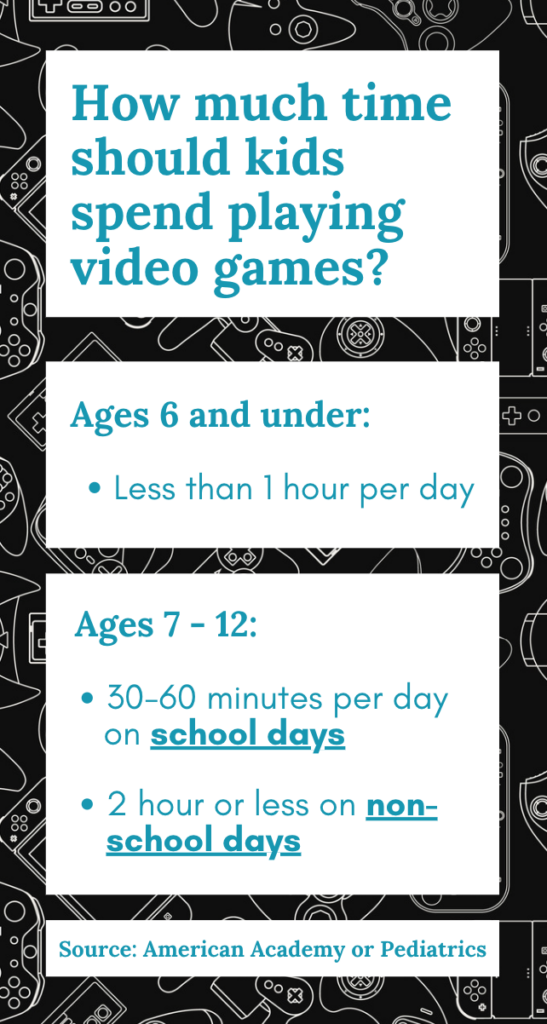
How Does Video Gaming Affect Health?
Numerous studies have found that video gaming has the potential to have a negative impact on children’s health in the following areas:
- Lack of sleep
- Obesity
- Not enough physical activity
- Development of gambling problems (loot boxes)
How Does Video Gaming Affect Cognitive Development?
A 2022 study found that “those who reported playing video games for three hours per day or more performed better on cognitive skills tests involving impulse control and working memory compared to children who had never played video games.” Children playing that long in games showed higher brain activity in areas related to attention and memory, as well as more activity in the frontal brain regions associated with more cognitively demanding tasks. The study also disagreed with previous studies that found video gaming could lead to increases in depression, violence, and aggressive behavior, although more research obviously needs to be done on this.
A 2023 study of fifth graders published in the Journal of Media Psychology found “no meaningful links between video game playing, even for hours, and the children’s cognitive ability.” This was held true regardless of how long the children played or what video games they were playing. Seventy percent of those studied were from lower income households, a group that had not been studied as much in other reviews. The study did reveal one other interesting finding, however. “Certain types of games described as helping children build healthy cognitive skills also presented no measurable effects, in spite of the games’ marketing messages.” This is different from findings about the cognitive development ability of games in young adults.
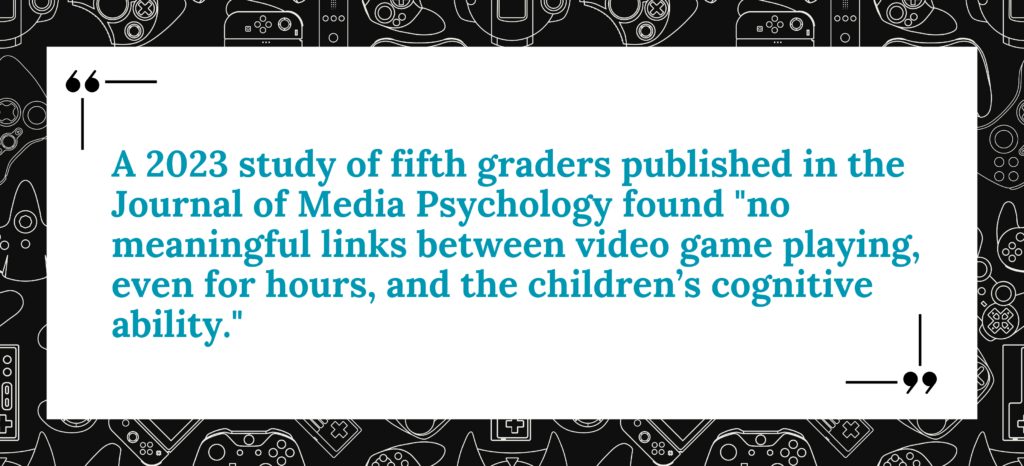
Much more continued research is needed on this topic and all of its parts, including screen time, vision, socialization and cooperation, time management, and impulse control. For now, it is recommended that parents monitor their children’s use of video games. Educators should also have discussions with their students about the potential downside to playing video games.




